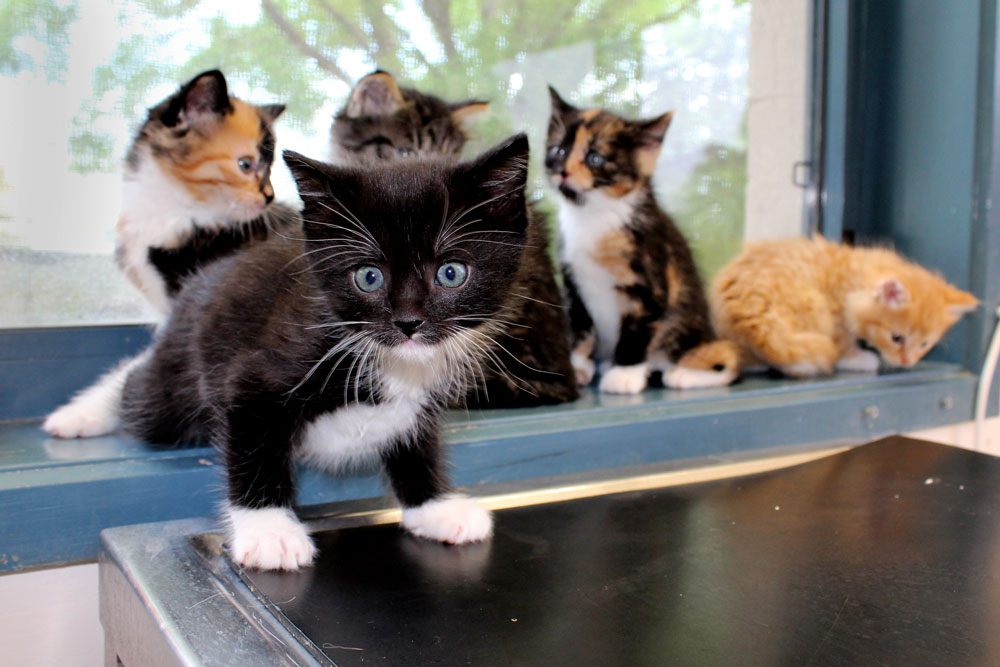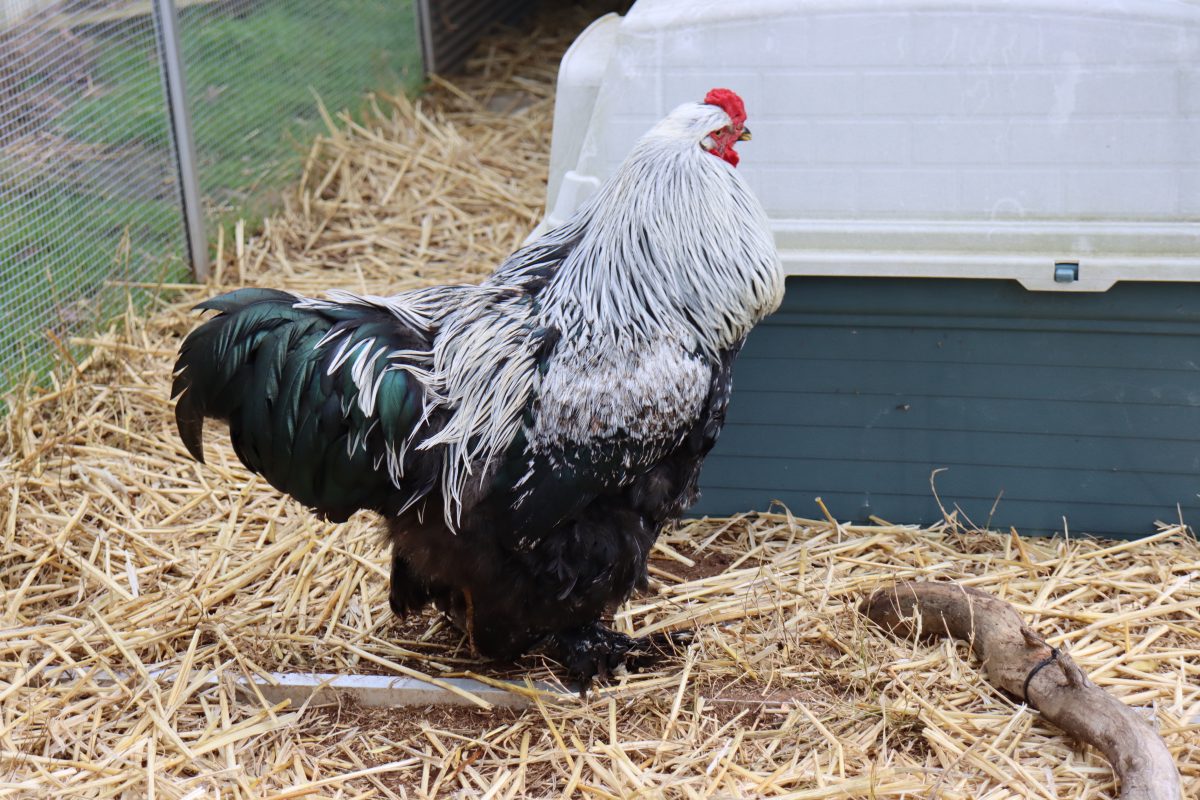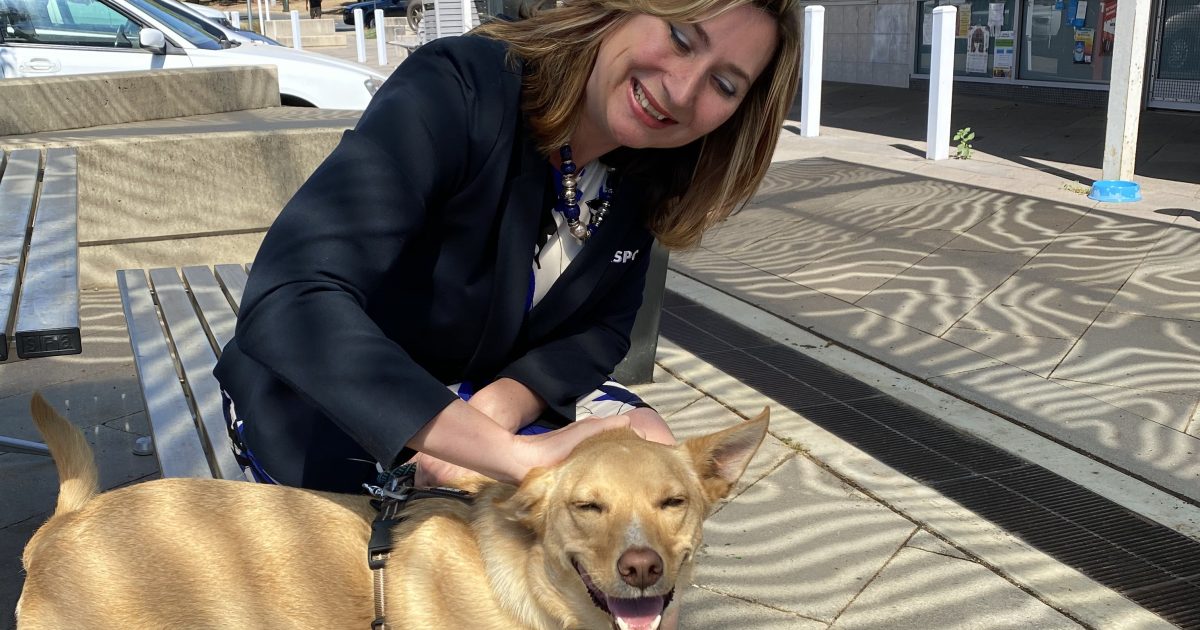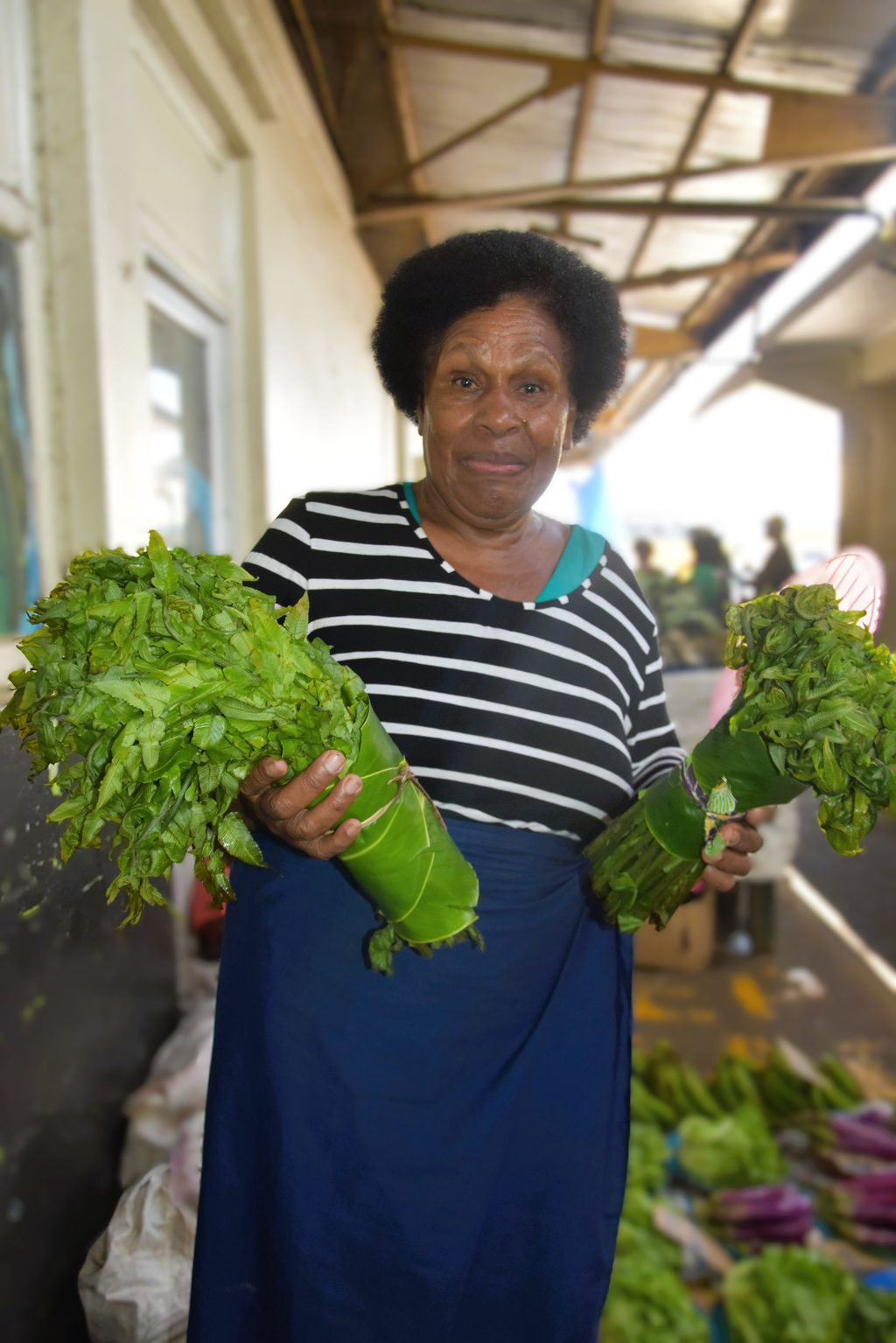RSPCA CEO Michelle Robertson with ‘Charlie’. Photo: Supplied.
More than 60 pets found new homes across Canberra last week – including dogs, cats, fish, chickens, and even a ferret – in what RSPCA ACT is billing as a “massive success”.
The Weston-based organisation has been inundated with the number of animals coming into its care over 2024, last week totalling more than 240 – more than they received in 2023 and 2022.
“This year, we’ve seen more puppies arrive in the past six months than in recent memory and about 100 more cats than this time last year,” CEO Michelle Robertson says.
“There are a lot of people who want to surrender their animals, but we just don’t have the space.”
This year’s animals also needed more medical attention, mainly because owners cut back on care due to the cost of living expenses.
At the same time, over the past two months, adoption rates have dwindled to between 20 and 25 per week.
“Cats usually get adopted much quicker than dogs, so from the point of becoming available and being adopted, it’s between two to three weeks for a cat, but we’ve got cats that have been here for much longer than that recently,” Michelle says.
“And dogs are tending to stay with us for months, and sometimes up to a year or longer.”

Some of the kittens recently surrendered to the RSPCA ACT shelter. Picture: RSPCA ACT.
Typically, cats cost between $250 and $400 to adopt, and dogs between $500 and $600, but desperate times called for desperate measures.
On Friday and Saturday (25 and 26 October), the fees were slashed to $50 for adult dogs and cats, and smaller animals were $20, in a sort of animal clearance sale.
“A total of 64 animals were adopted last week, with the majority going on Friday and Saturday, ” Michelle says.
“That’s the highest number in a small period of time we’ve had in absolutely months.”
The animals included dogs, cats, a bird, fish, a ferret, hens and a rooster, rabbits and a mouse. Many of these were long-termers too, such as Hope, Honey and Lottie (and others recently profiled in Region‘s regular Pets of the Week column), which was “just amazing.”
So will there be a repeat? It depends. Selling them for this price is an expensive exercise for the not-for-profit RSPCA.
Dogs and cats have been desexed and microchipped, are up to date with their vaccinations, have received veterinary checks and have undergone a basic behavioural assessment.
A fundraiser in October and good corporate support in recent times helped subsidise the cost of this, and Michelle says they’re “having conversations about what else we can do to try to get as many homed before Christmas as we can”.
“Having all our long-term pets adopted out would be the best Christmas present ever.”

Among the animals that went over the two-day adoption drive was a rooster. Photo: RSPCA ACT.
There are still about 200 animals in care that aren’t yet available for adoption yet, and all have to be made ready at cost to the RSPCA.
“It just depends what we’re able to do,” Michelle says.
“Some of these animals require multiple surgeries, vaccinations, parasite control and desexing … The adoption fee doesn’t cover the cost whatsoever.
“But we celebrate the community support because then we’re able to pass that back to the community with a reduced price, and that means a whole lot of animals are being adopted out. It’s a triple win.”
Visit RSPCA ACT for more information (you might just meet your new best mate).






